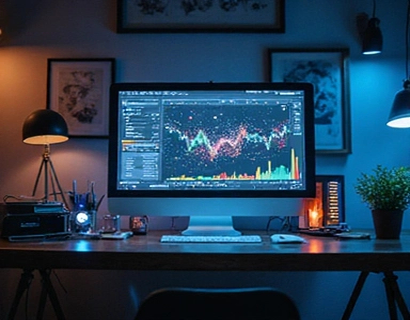AI Chat: Your Ultimate Guide to Tattoo Services, Industry Insights, and Expert Knowledge
The world of tattoos has evolved significantly over the years, transforming from a niche form of self-expression to a mainstream cultural phenomenon. For tattoo enthusiasts and professionals alike, staying informed about the latest trends, techniques, and industry insights is crucial. This guide leverages AI technology to provide a comprehensive resource on tattoo services, industry dynamics, and expert knowledge, ensuring a secure and enriching exploration for all users.
Understanding the Tattoo Industry
The tattoo industry is a multifaceted sector that encompasses various aspects, from the artistic creation of designs to the business operations of tattoo studios. To begin with, it's essential to recognize the different types of tattoo services available. These range from traditional needle work to modern laser removal and tattoo restoration services. Each service type caters to specific needs and preferences, making the industry diverse and dynamic.
One of the key trends shaping the tattoo industry today is the rise of digital technology. AI-powered tools are increasingly being integrated into the design and execution of tattoos. This technology not only enhances the precision and consistency of tattoo art but also provides clients with a more personalized experience. For instance, AI-driven design software allows clients to visualize their designs in 3D, making the decision-making process more interactive and satisfying.
Expert Knowledge: The Role of AI in Tattooing
AI technology is revolutionizing the tattoo industry in several ways. One significant application is in the area of design and customization. AI algorithms can analyze client preferences, skin type, and desired outcomes to generate tailored design suggestions. This not only saves time but also ensures that the final product aligns perfectly with the client's vision. Moreover, AI can assist in the shading and coloring processes, providing a level of detail and consistency that traditional methods may struggle to achieve.
Another area where AI shines is in client consultation and communication. AI chatbots can handle initial consultations, answering common questions, and providing information about the tattooing process. This not only streamlines the booking process but also helps in building a rapport with potential clients. For tattoo artists, AI tools can serve as valuable assistants, offering real-time feedback and suggestions during the design and execution phases.
Industry Insights: Market Trends and Consumer Behavior
The tattoo industry is not immune to market trends and consumer behavior shifts. Understanding these dynamics is crucial for both enthusiasts and professionals. One notable trend is the increasing popularity of micro-tattoos and discreet placements. These smaller, less visible tattoos appeal to individuals who want to express themselves without the commitment of a large, prominent piece. This trend is driven by a desire for subtlety and the ability to easily cover or remove the tattoo if needed.
Sustainability and ethical practices are also gaining traction within the industry. Consumers are becoming more conscious of the environmental and social impact of their choices. Tattoo studios that adopt eco-friendly practices, such as using biodegradable inks and sustainable packaging, are likely to attract a growing segment of environmentally aware clients. Additionally, transparency in sourcing materials and ensuring fair labor practices is becoming a key differentiator for studios.
Client Experience: From Consultation to Aftercare
The client experience is a critical factor in the success of any tattoo service. From the initial consultation to the post-tattoo care, every step should be designed to provide a seamless and satisfying experience. AI can play a significant role in enhancing this experience. For example, AI-powered consultation tools can guide clients through a detailed questionnaire to understand their preferences, skin conditions, and expectations. This data can then be used to create a personalized consultation plan, ensuring that the client's needs are met from the start.
During the tattooing process, AI can assist in monitoring the artist's techniques and providing real-time feedback to ensure the best possible results. Post-tattoo, AI can offer tailored aftercare recommendations based on the client's skin type and the specific tattoo design. This level of personalized attention can significantly improve client satisfaction and loyalty.
Professional Development: Resources for Tattoo Artists
For tattoo professionals, staying updated with the latest techniques and industry standards is essential. AI can provide a wealth of resources to support continuous learning and professional development. Online courses and tutorials powered by AI can offer step-by-step guidance, interactive simulations, and instant feedback on technique improvements. These tools can help artists refine their skills and stay competitive in a rapidly evolving market.
Networking is another area where AI can add value. AI-driven platforms can connect tattoo artists with peers, mentors, and industry experts, facilitating knowledge sharing and collaboration. These platforms can also help artists find job opportunities, access market trends, and stay informed about regulatory changes that may impact their practice.
Regulatory Landscape: Navigating Laws and Standards
The tattoo industry is subject to various regulations and standards, which can vary significantly by region. Staying compliant with these regulations is crucial for the legitimacy and success of any tattoo business. AI can assist in navigating this complex landscape by providing up-to-date information on local, state, and federal regulations. AI-powered legal tools can help studios create and maintain compliance documents, schedule inspections, and manage permits.
For clients, understanding the legal aspects of tattoos is also important. AI can provide information on consent forms, health and safety standards, and the rights of clients. This transparency helps build trust and ensures that both parties are well-informed about the process.
Future of Tattooing: Emerging Technologies and Trends
The future of tattooing is likely to be shaped by ongoing technological advancements. One emerging technology is the use of microneedle patches for tattoo application. These patches use tiny needles to deliver ink directly into the dermis, reducing pain and recovery time. This method is still in the experimental stage but holds great promise for the future of tattooing.
Another trend to watch is the integration of augmented reality (AR) in the tattoo design process. AR can allow clients to see how a tattoo would look on their body before committing to the procedure. This technology can significantly reduce the risk of dissatisfaction and the need for revisions.
Skin-friendly inks are also an area of active research. Traditional tattoo inks contain metals and other chemicals that can cause allergic reactions or health concerns. New formulations using biocompatible materials aim to minimize these risks, making tattoos safer for a broader range of individuals.
Conclusion
The intersection of AI and the tattoo industry represents a exciting frontier, offering enhanced precision, personalization, and efficiency. Whether you are a tattoo enthusiast looking to make an informed decision or a professional seeking to stay ahead of the curve, AI-powered resources can provide valuable insights and support. As the industry continues to evolve, embracing these technological advancements will be key to success and satisfaction in the world of tattoos.











































